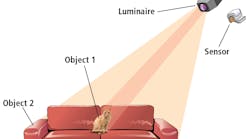The race to manufacturing gallium nitride or GaN LEDs on silicon substrates is really heating up. The latest news in the so called GaN-on-Silicon technology is that Taiwan's largest LED maker Epistar has manufactured some LEDs using its GaN component structure grown on silicon-based template wafers from Azzurro Semiconductors. Azzurro says that the transfer to silicon required only 16 weeks.
LED makers are pursuing silicon substrates because such wafers are readily available, including in the larger 8-in diameter. Still, it's the cost saving in the backend of the manufacturing process that is most attractive, because finished epi wafers could be further processed utilizing automated and depreciated IC fabrication lines.
We should know more about the race soon. Toshiba and Bridgelux have said that Toshiba would begin silicon-based LED production this month. And Plessey Semiconductors and Lattice Power also said they would enter production this year. Osram is also deeply involved in the technology race.
Of course silicon-based substrates are no sure thing. A number of companies plan to ride the incumbent sapphire technology. At The LED Show back in August, LED market leader Nichia said it had investigated and dismissed the possibility of using silicon.
Larger-diameter wafers would be critical in a continuation with sapphire because larger wafers mean that you can build more LEDs in the MOCVD reactor during the epitaxial process. ARC Energy has touted the ability to build 8-in sapphire wafers in its controlled heat extraction system furnaces. And Hyperion Geocrystal just announced volume production of such wafers.
There are other material possibilities as well. As we have discussed previously, startup Soraa is focused on GaN LEDs built on GaN substrates. The first MR-16 retrofit lamps using such LEDs are due next month from Japanese lighting manufacturer Ushio.
In the startup and funding area, Boston-based ByteLight has emerged from stealth mode with $1.25 million dollars from VantagePoint Capital. The company intends to develop a GPS-like system for indoor applications ranging from shopping navigation to guidance in museums and trade shows. LEDs are the key cog in the concept, because the location data would be transferred to personal smartphones using modulated light from an LED fixture that is imperceptible to the eye.




